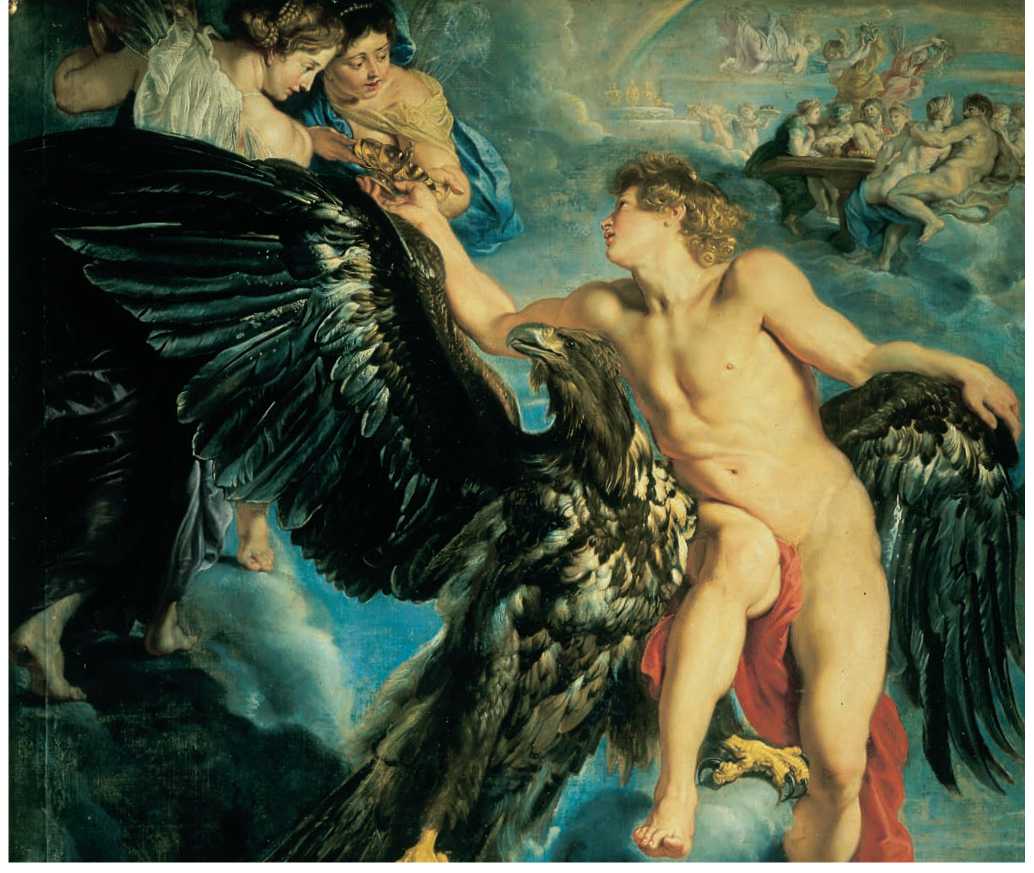When Ganymede arrived on Mount Olympus, the cupbearer of the gods was Zeus’s daughter Hebe. Hebe and Ganymede vied with each other for the honor of serving the gods. Eventually Ganymede won the position and became the close companion of Zeus.
Another Olympian upset by the arrival of Ganymede was Hera, the wife of Zeus. When Zeus took Ganymede as his lover, Hera was consumed by jealousy. In order to protect the boy from her wrath, Zeus granted him
Left: This image of a naked Ganymede holding a rooster was painted in Greece around 500 BCE.

Above: The Abduction of Ganymede is one of the greatest works by Flemish artist Peter Paul Rubens.
Immortality and installed him among the stars as the constellation Aquarius. There he eternally carries water for the gods, while Aquila, the eagle, stands guard nearby.
The people of Troy expected to reap some benefits from Ganymede’s move to Mount Olympus, but they were sadly disappointed. In the second choral song of Trojan Women, a play by Euripides (c. 486—c. 406 BCE), the women of the city lament that the boy’s abduction has brought them no favors from the gods, and that Ganymede himself has no concern for the fate of his native city.
Ganymede is thought to be unique among the characters of Greek mythology: he is the only mortal who did not have to win the right of abode on Mount Olympus. Pollux, Heracles, and Asclepius, each of whom had one divine parent, all had to earn their place among the gods. Tithonus, also taken aloft from Troy, was granted immunity from death, but he did not gain exemption from old age, and thus his “gift” was more of a curse than a blessing. Yet the wholly mortal Ganymede was granted immortality without any effort on his part, or any physical transformation. His elevation to Olympus was in itself sufficient to strip away his mortality.




 World History
World History









